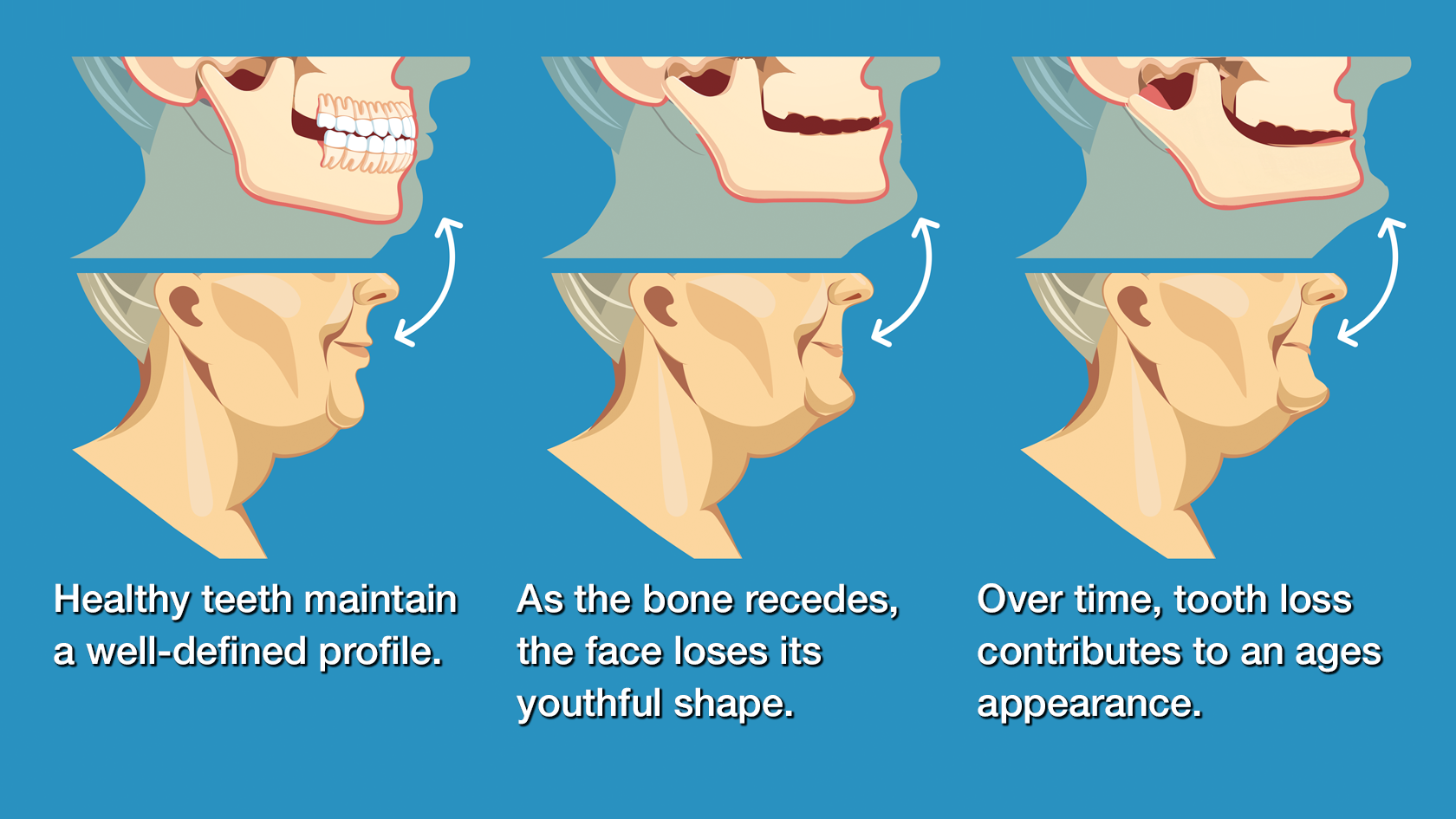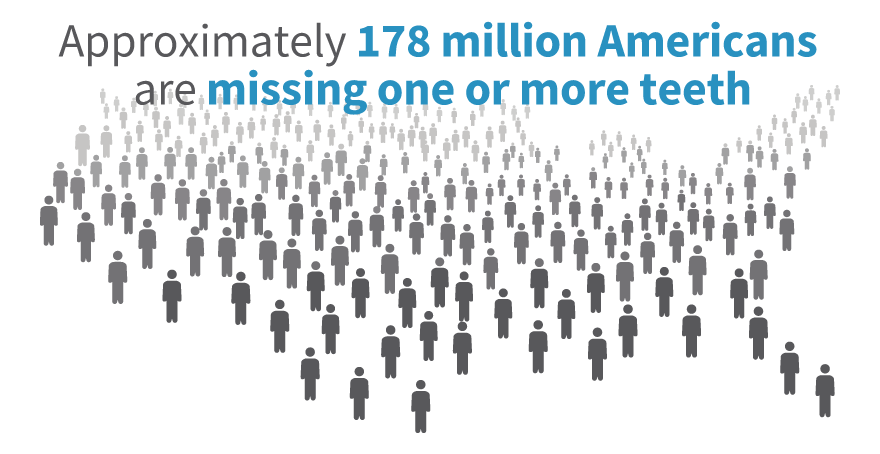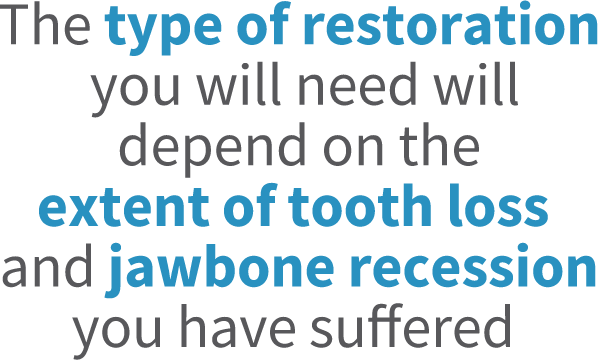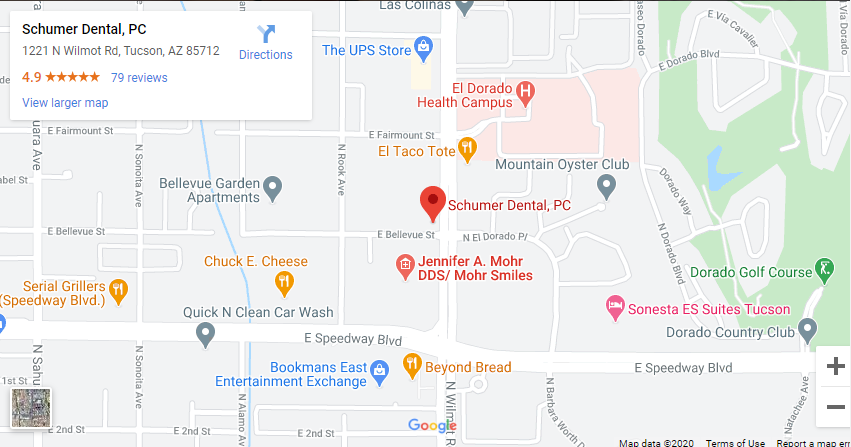Missing teeth can make it difficult to chew and speak clearly. You may also feel embarrassed about the gap in your smile.
A variety of solutions exist for replacing missing teeth. If you neglect to address tooth loss, your oral and overall health may be in jeopardy.
Is it really necessary to replace missing teeth?
Tooth Loss Can Have Serious Consequences
- Decreased Dental Function
Each of your teeth is essential to proper dental function. One or more missing teeth can affect your bite, which can cause difficulty chewing and result in excessive wear. Additionally, it can affect your speech.
- Feelings of Self-Consciousness
Your smile is one of your most notable features. Many patients feel self-conscious when they experience visible gaps in their smile as well as changes in their facial structure. Over time, this can take a significant toll on your confidence.
- Escalating Oral Health Issues
Once a single tooth has been lost, the jawbone begins to deteriorate. As the surrounding hard and soft tissues become less supportive, your other teeth will become loose and eventually fall out.
So what exactly happens to my bite if I lose a tooth?
The Surrounding Tissues Immediately Begin to React
Am I at risk of tooth loss?
Certain Habits Can Increase Your Risk
Advanced decay and trauma can cause tooth loss. There are certain factors that may influence your risk:
- Poor oral hygiene
- Smoking or chewing tobacco
- Neglecting routine dental care
- Uncontrolled diabetes
- Inadequate nutrition
- Drug or alcohol abuse
It is highly recommended that you undergo a dental exam every six months so your doctor can catch harmful conditions, such as cavities, in their earliest stages.
What are the most common causes of missing teeth?
Missing Teeth Typically Occur Due to Disease, Damage & Genetics
- Oral Health Issues
Typically, tooth loss is caused by poor oral health which leads to severe cavities or gum disease. These conditions can drastically impact the health of your teeth and the surrounding tissues.
- Dental Trauma
Many patients suffer injuries such as fractured teeth by playing sports, using their teeth to open packages, and other accidents. If the damage is too severe to repair, your tooth may need to be removed.
- Genetic Conditions
In some cases, teeth never develop due to a genetic condition known as hypodontia. Congenitally missing teeth may occur in the front or rear of the mouth. Although the condition is not preventable, it still requires treatment to minimize the effects.
Do people really spend the money to replace missing teeth?
Millions of Americans Are Missing Teeth & Many Are Investing in Dental Implants
Approximately 178 million Americans are missing one or more teeth and 40 million are completely toothless. Currently, three million patients have replaced their missing teeth with dental implants and another half million undergo treatment each year. Implants offer several benefits over earlier forms of treatment.
*According to the American College of Prosthodontists and the American Academy of Implant Dentistry
What Is the Best Way to Treat a Missing or Extracted Tooth?
There are two types of tooth replacement options: traditional and implant-supported. Traditional restorations include dental crowns, bridges, and dentures. However, these can all be attached to dental implants for greater stability.
Typically, implant-supported restorations are recommended whenever possible because they protect against further jawbone atrophy. During a consultation, your doctor can help determine which method is best for you.
I’m ready to address tooth loss and protect my smile…
A Doctor Can Help Replace Missing Teeth
If you are missing one or more teeth, or fear your tooth may be at risk of falling out, schedule a consultation as soon as possible with your doctor. An experienced oral health professional can help you plan treatment to protect your health and restore a natural appearance to your smile.





















